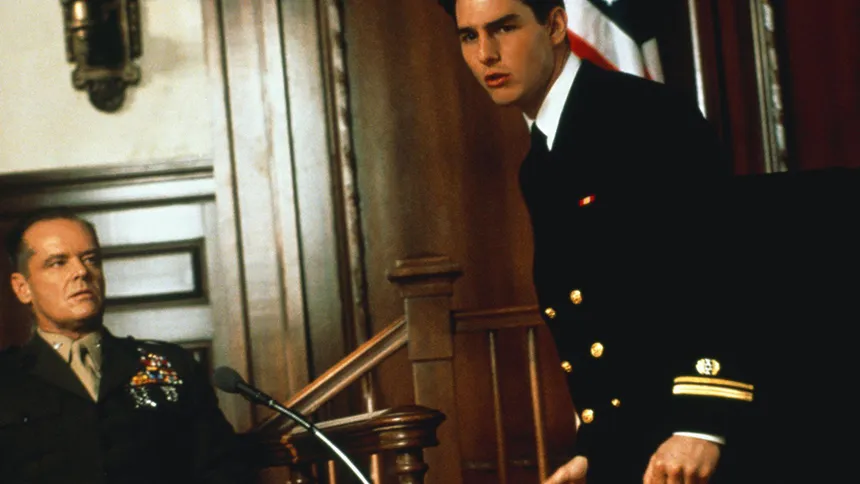The brutal reality of institutional culture is eerily captured in the 1986 film “A Few Good Men”. Director Rob Reiner’s portrayal of Colonel Nathan R. Jessep, played by Jack Nicholson, as a tyrannical and abusive drill instructor is a stark reflection of the ways in which institutions can create a culture of fear and intimidation. This mentality can lead individuals to sacrifice their personal values and integrity in order to conform to the norms and expectations of the institution.
The film’s contrast between the idealized notion of military service and the harsh realities of military life is a powerful commentary on the ways in which institutions can shape and mold individuals to fit their own goals and agendas. The report suggests that “A Few Good Men” is not just a critique of the ways in which institutions can be used to control and manipulate individuals, but also a commentary on the ways in which institutions can create a sense of loyalty and commitment in individuals.
The film’s depiction of Colonel Jessep’s abusive behavior towards his recruits is a stark example of the ways in which institutions can use fear and coercion to maintain control over individuals. This form of institutionalized heroism creates a culture in which individuals are forced to conform to the norms and expectations of the institution, often at the expense of their personal values and integrity.
Moreover, the report notes that the film is also a commentary on the ways in which institutions can create a sense of camaraderie and shared purpose among individuals. The bond between Lieutenant Daniel Kaffee, played by Tom Cruise, and his fellow recruits is a clear example of the ways in which institutions can create a sense of loyalty and commitment in individuals.

A Still From A Few Good Men Movie (Photo: A Few Good Men)
The film’s exploration of what it means to be a good person and the consequences of failing to live up to the expectations of the institution is a powerful commentary on the darker aspects of institutional culture. Ultimately, “A Few Good Men” is a film that raises important questions about the nature of heroism and the ways in which institutions can shape and mold individuals to fit their own goals and agendas.
The report suggests that “A Few Good Men” is a thought-provoking film that reveals the darker underbelly of collective conformity. The film’s portrayal of institutionalized heroism is a powerful commentary on the ways in which institutions can create a culture of fear, intimidation, and control, and the ways in which individuals can be shaped and molded to fit the institution’s goals and agendas.
























